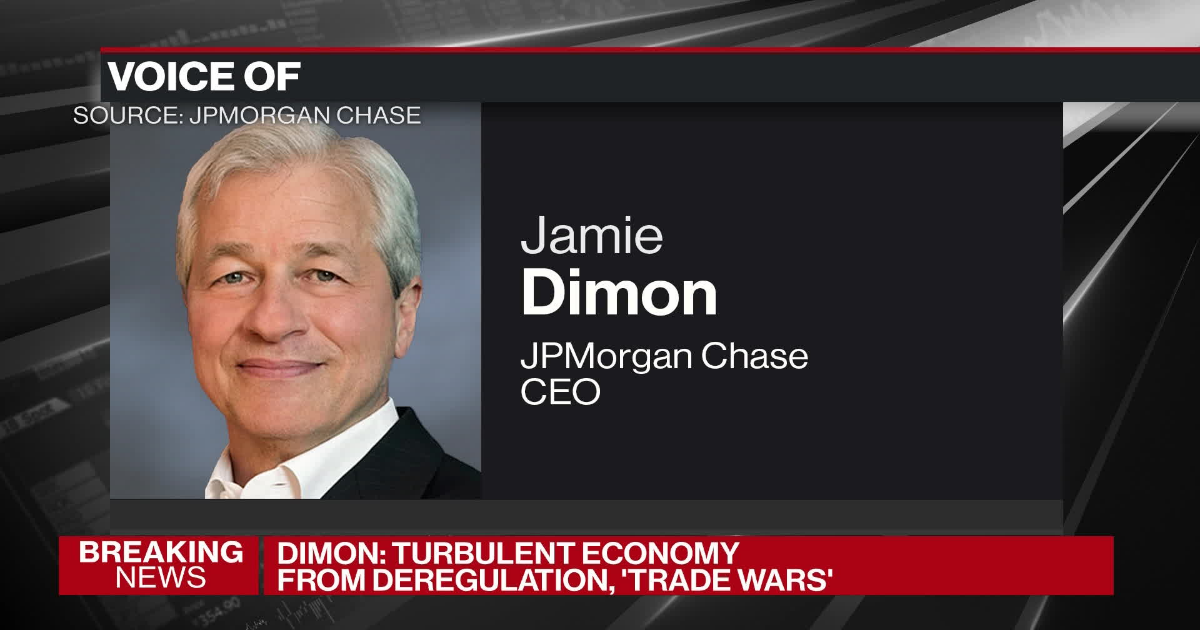Skip to content
Home
Dimon Warns of Turbulence In Midst of Trading Wave
CC-Transcript
- 00:00Jp morgan reporting strong results, but CEO Jamie Dimon expressing caution about the economy. People are not doing things because of this. We’re going to wait and see. And that’s that’s that’s M & A. M & A with middle market companies, that’s people’s hiring plans and stuff like that. So people have to adjust this new environment. For more, we are joined by Bloomberg finance reporter Catherine Doherty. There are live blogs going on for both calls, Jp morgan, Morgan Stanley from all of our colleagues on the finance desk. I know bagels are around the corner for us too long. Warning. You know, despite the numbers themselves, we saw record trading at Morgan Stanley and Jp morgan. How do you describe the kind of caution we’re hearing from the bank executives? So there’s the two consumers and the corporate clients that they’re both painting this very tepid, uncertain outlook ahead, and that is affecting behavior. So for consumers, what J.P. Morgan’s on their call, what they highlighted was that the behavior has been actually a move forward. People are spending with the expectation that costs for some of the goods, whether it’s an iPhone or maybe it’s something that you were holding out to buy a car, you might be going to get that item now with the expectation that prices could increase tied to tariffs. Now, with corporate behavior, what was referenced on today’s call is that they’re starting to see a lot of the companies that they’re working with hold back on. They’re changing their strategies. So they’re looking at what are the things that we need to do to shore up our ability to potentially handle price increases or if these tariffs do change the way that we need to manufacture potentially moving to the US. Those are the types of decisions that money managers at these companies are starting to think about rather than how to spend to be more on the offensive rather than I think right now. What’s the change? And the mood is moving to the defensive. I’ve been monitoring savings account levels and debt levels and they seem to be savings account levels moving lower, debt levels moving higher across income groups. Have you heard any bifurcation of consumers? Have you heard anyone talk about a low income consumer is having a tougher time, a higher income consumer is doing better, or are they all put in one bucket now? So across the board, JPMorgan just highlighted strength for the consumer and that they’re not seeing cracks yet. But I do think that what they are also pointing out in the difference that you’re alluding to is that with the higher end consumer, there is a slight advantage that they’re given. And I think that they’re seeing that in the form of spending and also the savings are had. They have a little bit more of a cushion than at the lower end of the consumer. But they’re not yet saying that that low end consumer is experiencing financial stress. That would cause concern as of today. And Catherine, I want to talk a little bit about Jamie Dimon, the man himself. I mean, he just said on the earnings call that the bank will be in the crosshairs of the trade war. But as you’ve reported on throughout this week, Jamie Dimon has been also an influential voice when it comes to our trade policy. That’s correct. He has spoken an earlier interview on Fox. He put out his annual letter on Sunday night. So those were both moments that the market and even President Trump was digesting, putting out his own reactions to what Dimon was saying. And on today’s call, analysts did ask Dimon, was this changing how you were given your own outlook or were you even aware of the president listening in to your commentary? And he said, I was not aware and it does not change my approach or how I want to communicate to our customers and to the market at large.

